Chess For Children Of All Ages
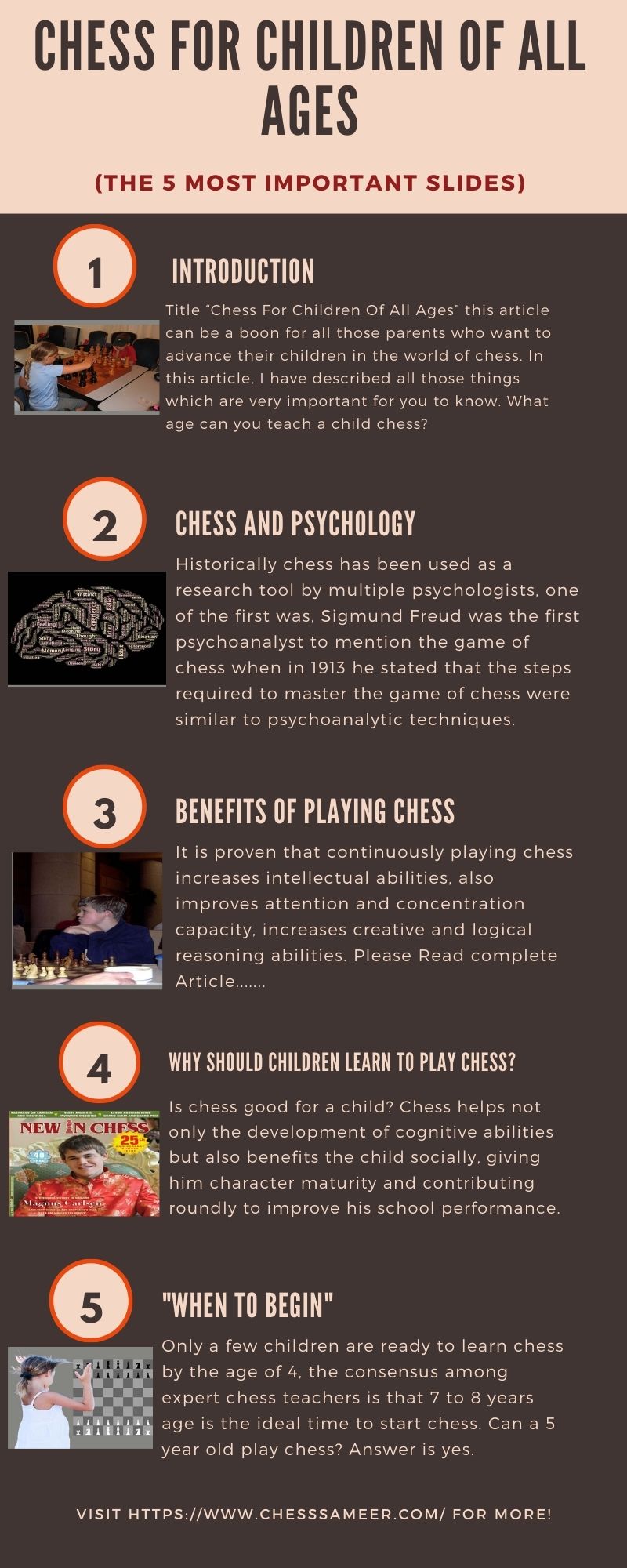
Chess For Children Of All Ages
INTRODUCTION:
Title “Chess For Children Of All Ages” this article can be a boon for all those parents who want to advance their children in the world of chess. In this article, I have described all those things which are very important for you to know. What age can you teach a child chess?
In this article, we have discussed some very specific concepts and things related to chess. Such as the old, modern and computer game methodology, the style and scheme of the game, which was the weapon of great chess players and is still today.
Chess has historically been used as a research tool by many psychologists. Chess is part of school records in thousands of schools in some 30 countries around the world. Advantages of playing chess. Why should children learn to play chess? and many more.
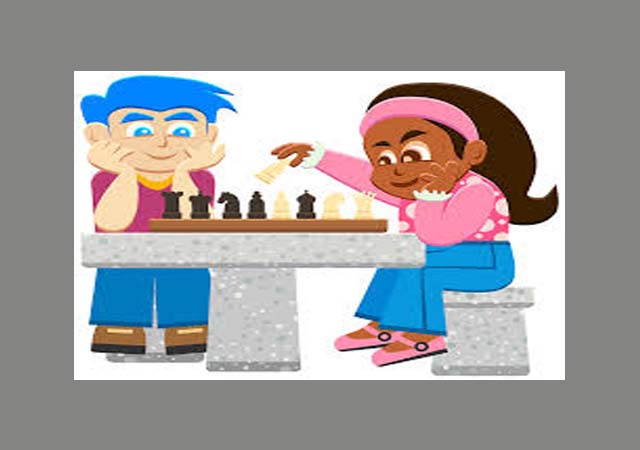
Chess For Children Of All Ages
Chess Teaching System And Playing Style
The present chess teaching system combines the didactic methods of the old system and on the other hand the computer methodology. For the first case, emphasis is placed on the psychological and emotional aspects of the students.
According to their evaluation and diagnosis, seek the style of play that best suits their personality, in this way it is achieved that each chess player plays comfortable and can exploit its full potential.
By style we understand the way of planning and executing the game, it can be aggressive, positional, tactical, strategic, defensive, etc. All the great chess champions were characterized by having a defined style Capablanca, Alekhine, Petrosian, Tal, Karpov, Kasparov, Fischer, Botbinik etc.
Chess of the 21st century, whether for the elite or for amateurs, cannot put aside the computer science, the powerful chess programs that beat today’s great champions are available to everyone but not everyone knows how to use them to progress and develop their own game.
The possibility of accessing this new pedagogical system whose study methodology will allow you to advance and progress continuously in chess and with time it is true that these same principles can be applied in other orders of life.
Chess is a chance that not everyone gets, because it is a game of kings. Try it and feel the superiority! Approach to Chess. A close-knit circle of successful versatile people. Chess is calculus, mathematics, geometry, imagination, creativity, and intuition.
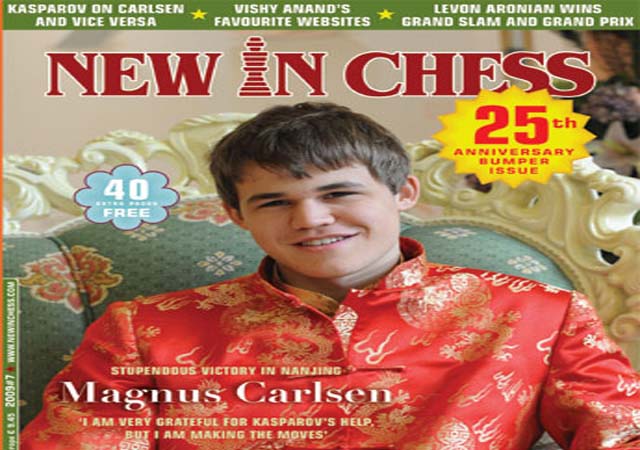
Chess And Psychology
Historically chess has been used as a research tool by multiple psychologists, one of the first was, Sigmund Freud was the first psychoanalyst to mention the game of chess when in 1913 he stated that the steps required to master the game of chess were similar to psychoanalytic techniques.
In 1925, Russian-born psychologists Djakow, Petrowski and Rudik studied the great masters of chess to determine what were the fundamental factors of chess talent. These researchers determined that the great achievements in chess were in exceptional visual memory, combinatorial power, speed to calculate, power of concentration and logical thinking.
“Chess is one of the most complete sports games for the intellectual development of boys and girls because, in addition to structuring their minds, it is a fun way to learn a game that is not common among people of their age and that they allows them to develop their intellectual capacity “.
What is chess for us ?! The oldest and greatest game in the world? A clash of opposing intelligences? Game of Chess for us is not a goal of life, not a fetish, not a profession. Chess for us is logic, speed in making decisions, calculating options, objectivity.
Chess for us is a competitive advantage, a new type of thinking. Therefore, for us it does not matter at all who you are and how old you are, how much free time you have, do you know how a horse walks and why it does it. All you need is a desire to learn.
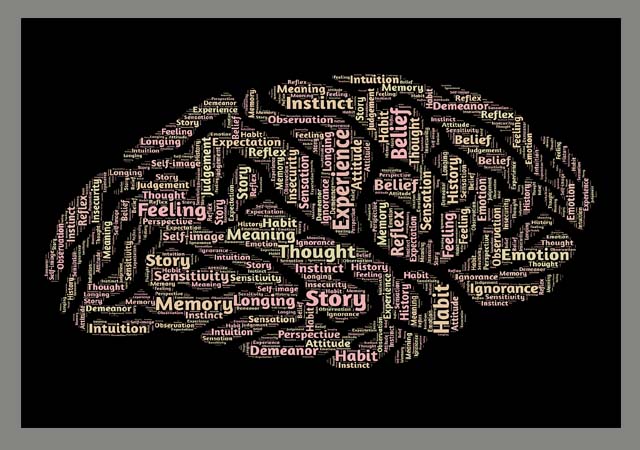
Chess For Children Of All Ages, chess brain
FIDE’s Significant Effort To Promote Chess For Children Of All Ages
At the meeting of the Chess in Education Commission of the International Chess Federation (FIDE) in August 1984 the value of chess as part of the school curriculum was reviewed.
Some of the benefits of chess mentioned in this meeting’s report include: memory development, increased creativity, cultural enrichment, and mental development. The Commission determined that the preparation of documents to incentivize governments to introduce chess in schools was appropriate. (FIDE Report, 1984, p. 74)
The general conclusion is that chess taught in a methodological way is a sufficient incentive system to accelerate the increase in IQ in primary school children of both sexes at any socio-economic level. It is also apparent that this study showed very interesting results in relation to the transfer of chess thinking to other areas of study.
BF Skinner, an influential contemporary psychologist wrote: “There is no doubt that this entire project will be regarded as one of the great experiments of this century for our society.” (Tudela, 1987) Due to the success of this study, the chess program was substantially expanded.
At the beginning of the 1988-89 school period, chess was taught in all schools in Venezuela. Chess is part of the school record in thousands of schools in some 30 countries around the world.
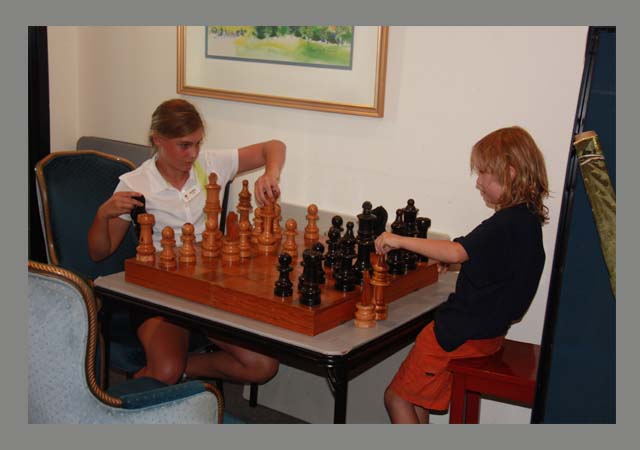
Chess For Children Of All Ages
Benefits of playing chess
- It is proven that continuously playing chess increases intellectual abilities, also improves attention and concentration capacity, increases creative and logical reasoning abilities.
- Alzheimer’s disease can be prevented with intense intellectual activity, in addition to playing chess, I could prevent this disease.
- It is therapeutic in social problems such as drug addiction, lack of self-esteem, unproductive leisure.
The insignificant pawn can be important. - It considerably increases the intellectual abilities, in addition it allows that these abilities can be measured continuously through chess games.
- Improves structures of thought-helps to think assertively-, through explanation and reasoning.
- Improves convergent thinking (this is done when looking for a specific or conventional answer).
- Development of divergent thinking (mental mechanism that intervenes in solving problems that admit several solutions, all of them valid).
- Help in solving problems: Algorithmic type and heuristic.
- Algorithmic: It is a gradual method for solving problems that guarantees a correct solution.
- Heuristic: helps to simplify and solve a problem.
- Teaching pro problem solving (Once the problem is interpreted, it consists of choosing a strategy that suits the problem).
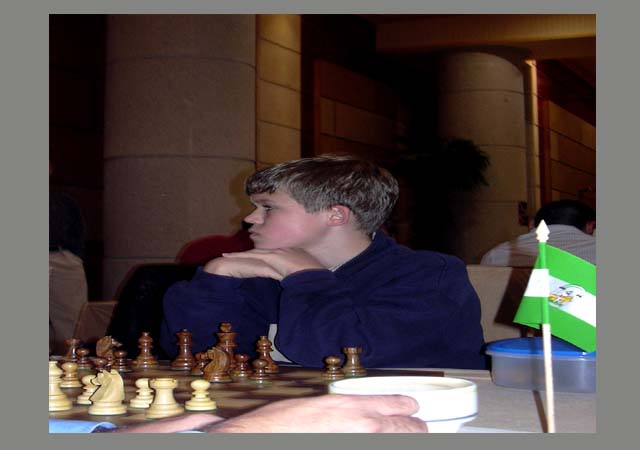
Chess For Children Of All Ages, Magnus Carlsen Childhood
Why should children learn to play chess?
If you or your child are or want to become a chess player or are trying to improve their chess skills, then first of all you should look for a true and international level chess set, which will give you experience of the greatness of the game.
Is chess good for a child? Chess helps not only the development of cognitive abilities but also benefits the child socially, giving him character maturity and contributing roundly to improve his school performance.
In many countries around the world, more than one new chess learning program has been implemented at the official level.
which uses chess as a tool for the development of the intellect. The intention of the authors when trying to implement this program, through the classroom, is not only that children learn the game, but fundamentally that they learn to reason, that the logical process they apply on the board, apply it to other aspects of the life.
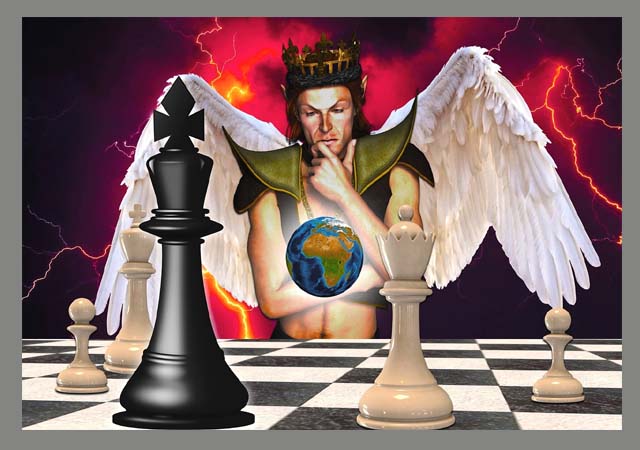
Chess For Children Of All Ages
“When to Begin”
What age can you teach a child chess? American Chess School’s Dr. Ferguson says, “I think the younger kids, the bigger the impact, the more the kindergartners are taught the game. These children have brains like a sponge.” Can a 3 year old play chess?
Only a few children are ready to learn chess by the age of 4, the consensus among expert chess teachers is that 7 to 8 years age is the ideal time to start chess. Can a 5 year old play chess? Answer is yes.
For gender, most expert chess teachers agree that many more boys are interested in chess than girls and continue to play further. But I don’t believe that chess is a boys’ thing.
Chess expert Brownscom says. “Obviously, women are fully capable of competing with men in chess.” She is not afraid of anyone. As the popularity of chess increases in children, they take chess more seriously, experts who have been associated with chess for years say that more girls are playing and winning nowadays.
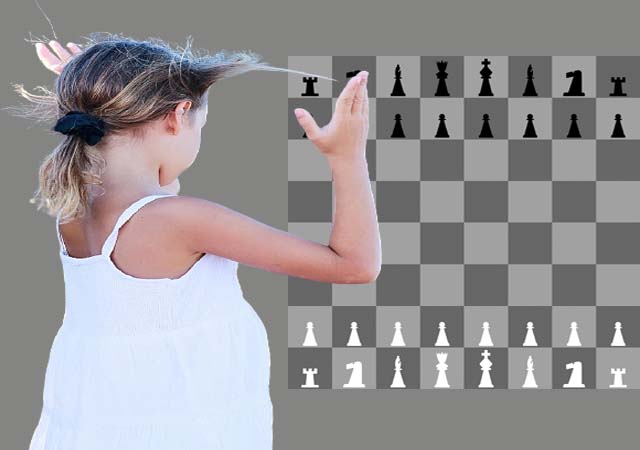
Chess For Children Of All Ages
